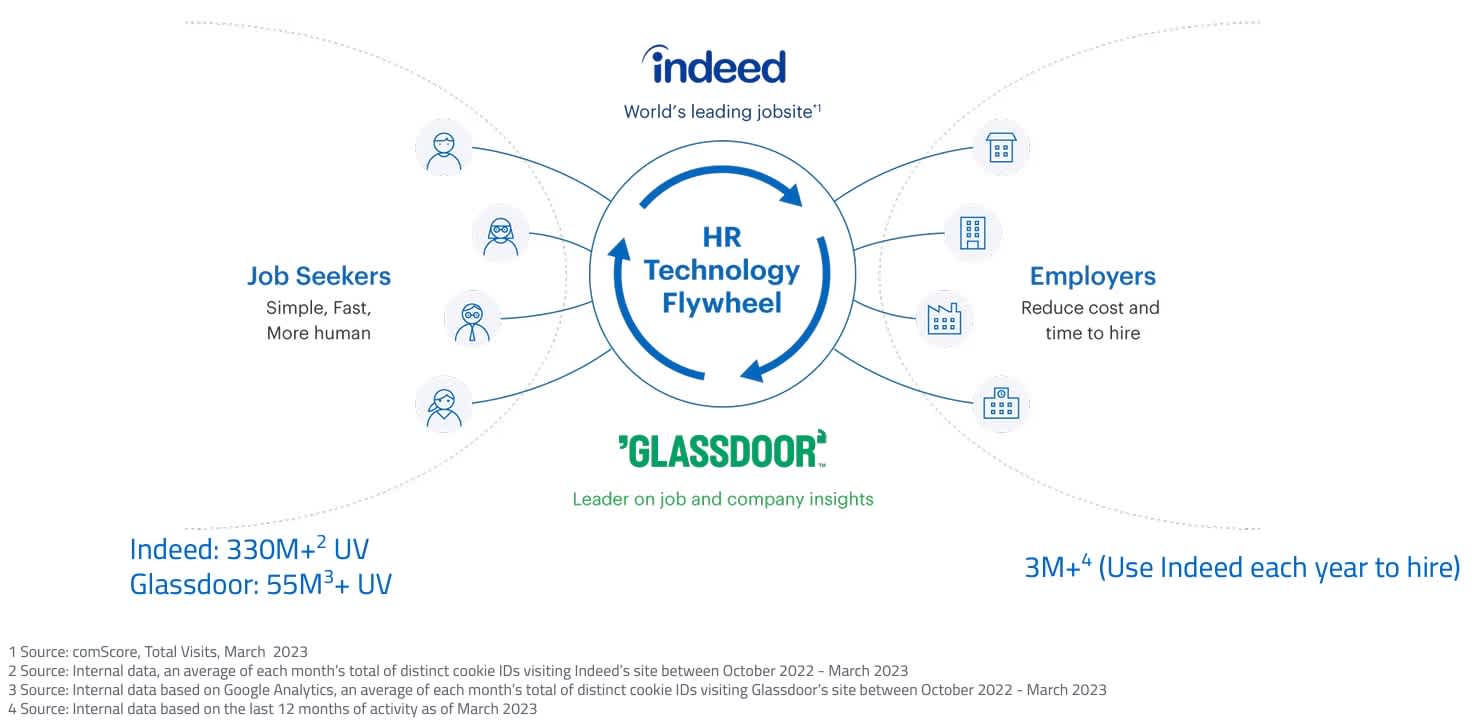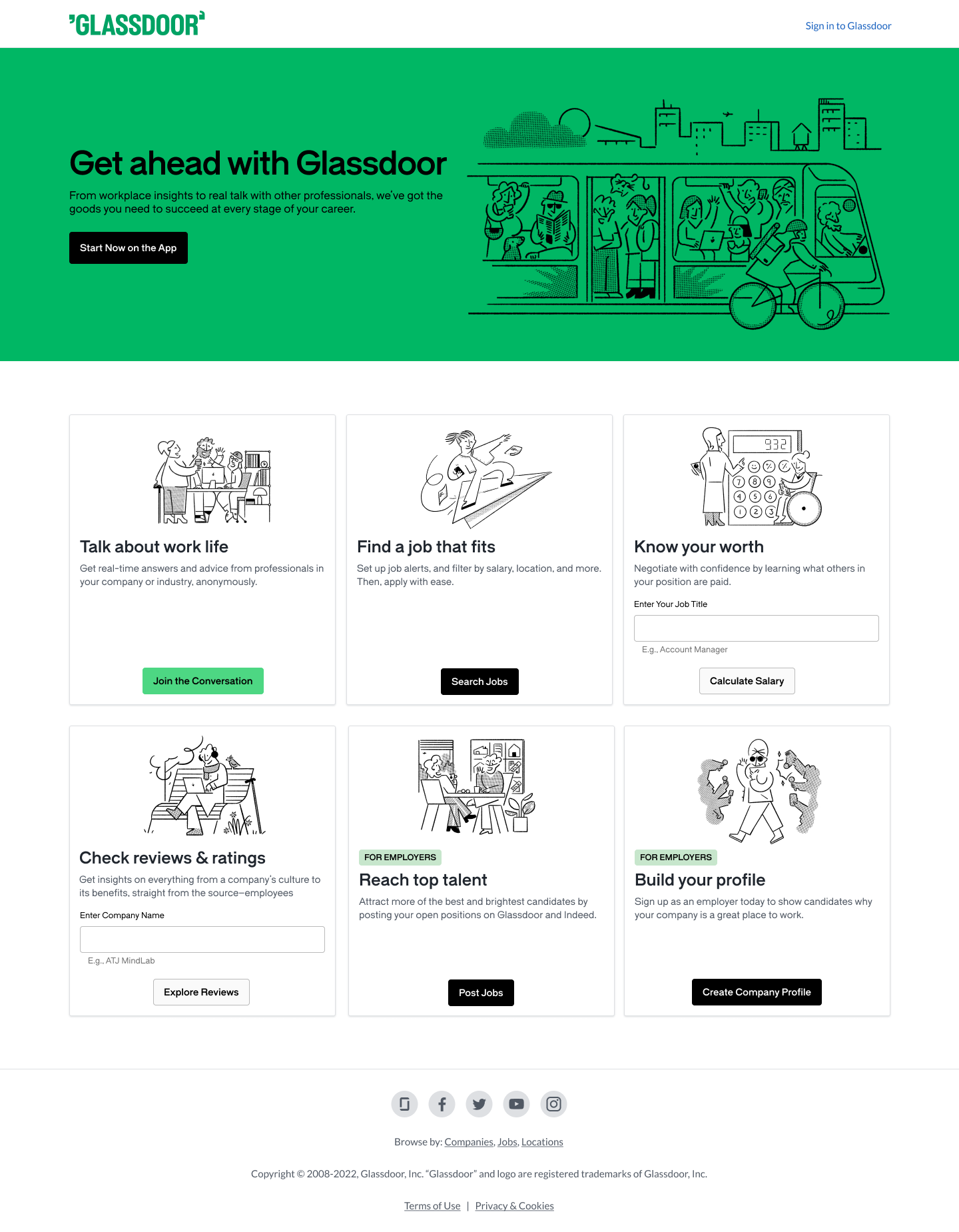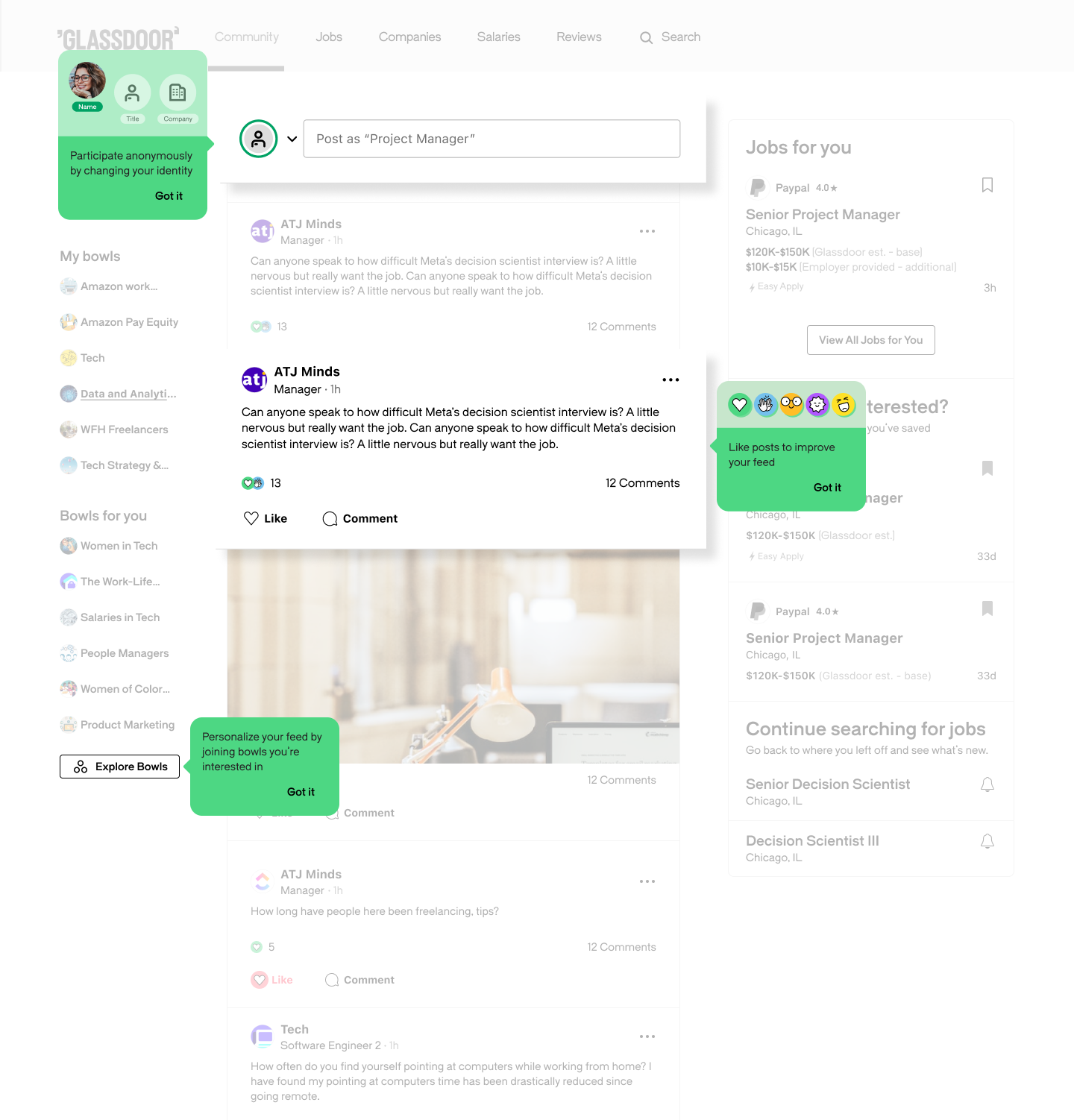Glassdoor, part of Recruit Group, announced its rebranding on July 18, 2023. Along with a new brand identity and logo, Glassdoor shared that it was evolving from a job search engine with workplace reviews to include “community” features, where people talk about workplaces every day. We asked Glassdoor’s CEO Christian Sotherland-Wang about the background and what they aim to accomplish with the rebranding.
Glassdoor’s Journey
Glassdoor was founded in 2007 in California as a technology company focused on its job search engine. In 2018, Glassdoor became a subsidiary of Recruit Holdings, forming its HR Technology Strategic Business Unit (SBU) together with sister company Indeed. Glassdoor has provided higher transparency around workplaces for everyone by collecting and publishing job information and company reviews. In recent years, it has added more community-focused features. By participating in a community on Glassdoor, users can have a real-time and candid conversation about their workplace.

User feedback on Glassdoor ranges from basic information such as company evaluations, CEO evaluations, salaries, and benefits, to questions and impressions people had during job interviews. Glassdoor welcomes more than 55 million monthly unique visitors, and has published 150 million reviews across 20 countries*1. The name Glassdoor represents allowing you to look inside a company before joining as if you look through a glass door. The company has become an important source of information for job seekers worldwide. Client company pages on Glassdoor are also a place to let job seekers know about the company.
In 2021, Fishbowl, a social networking service where over one million workers engage in lively discussions about careers, industries and workplaces, joined Glassdoor. Then, in 2022, the Glassdoor mobile app introduced a community function, which allows users to create groups and discuss topics of interest. Glassdoor has made steady progress toward transforming into a community.
*1 Glassdoor data
Transforming From a Website to Visit Only When You Change Jobs to an active Community You Visit Every Day
Glassdoor’s rebrand also brought a new design for the mobile app and website. The centerpiece of this new look is the community feature.

The redesigned Glassdoor website
Users enter communities called “bowls” aligned to topics such as "tech industry" and "working mother." In the communities, they can connect with people working in specific industries, companies and receive and share advice on work. You can also have a real chat with your colleagues in your company's exclusive conversation space called "Company Bowl™". Both are designed with consideration to be a space where people can talk honestly and engage in conversations that are difficult to have face-to-face. Users participate after setting their own anonymity level*2.
*2 Users can freely set the personal information disclosure level; you can reveal your company name or disclose only your job title when having a conversation.

Desktop image of Bowl
Rebranding to Meet the Need for a Place Where Job Seekers, Employees, and Managers Can Talk Frankly
We asked Christian, Glassdoor’s CEO, some questions about the background to this rebranding.
What made you decide to do rebranding now?
The world has changed since the pandemic. We see today that the web has been overtaken by mobile apps as all of us use social media apps in all parts of our day to day lives. We see the world of work is far more distributed and remote than it ever was, and people are no longer having the types of physical connections they used to have in the workplace. What people are looking for in Glassdoor has changed as a result.
What do people look for in Glassdoor today?
We also see today a new generation of workers on the scene who are demanding more transparency, not less. And we also have a new generation of leaders on the scene as well. A generation of leaders who have a deeper appreciation for the power of company culture and how it drives a business forward. As such, we have new needs and new desires from job seekers, employees and employers, a greater desire for transparency in communications, a greater desire to connect with your colleagues.
Do leaders also have a need to connect?
Definitely. A greater desire to have your voice heard in your company and from leaders, a greater desire to put your finger on the pulse of what's going on in your company. Because, that's the way you can drive a positive workplace experience. As Glassdoor, we've had the conviction for several years that our answer to this is to build a platform for real talk between job seekers, employees and employers, a platform for workplace conversations.
What changes will this rebranding bring to users?
The new Glassdoor will change how people use and get value out of it. We transformed from a site that people come to a couple of times a year when they are looking for a job to an app they get value out of every single day.
What about the impact on companies?
I see Glassdoor now as a place where leaders can go to listen and to learn. I can tell you from my personal experience as the CEO of Glassdoor, that our company bowl is hands down the most important tool. I have to know what is going on in our company and to guide the way I communicate. No more waiting for company surveys. I am so happy that we are able to provide this same tool to CEOs around the world.

Christian Sutherland-Wong
Glassdoor CEO
Christian joined Glassdoor in 2015 as vice president and general manager of monetization. In 2018, he was appointed as the company’s first chief operating officer and was promoted to president in 2019. Christian became CEO in January 2020 and is responsible for leading Glassdoor’s mission to help people everywhere find a job and company they love. Prior to Glassdoor, Christian served as LinkedIn’s director of product, managing its premium subscription business, payment platform and API program. He also has experience in the business consulting and banking fields.